We can't find the internet
Attempting to reconnect
Something went wrong!
Hang in there while we get back on track
Phoenix LiveView
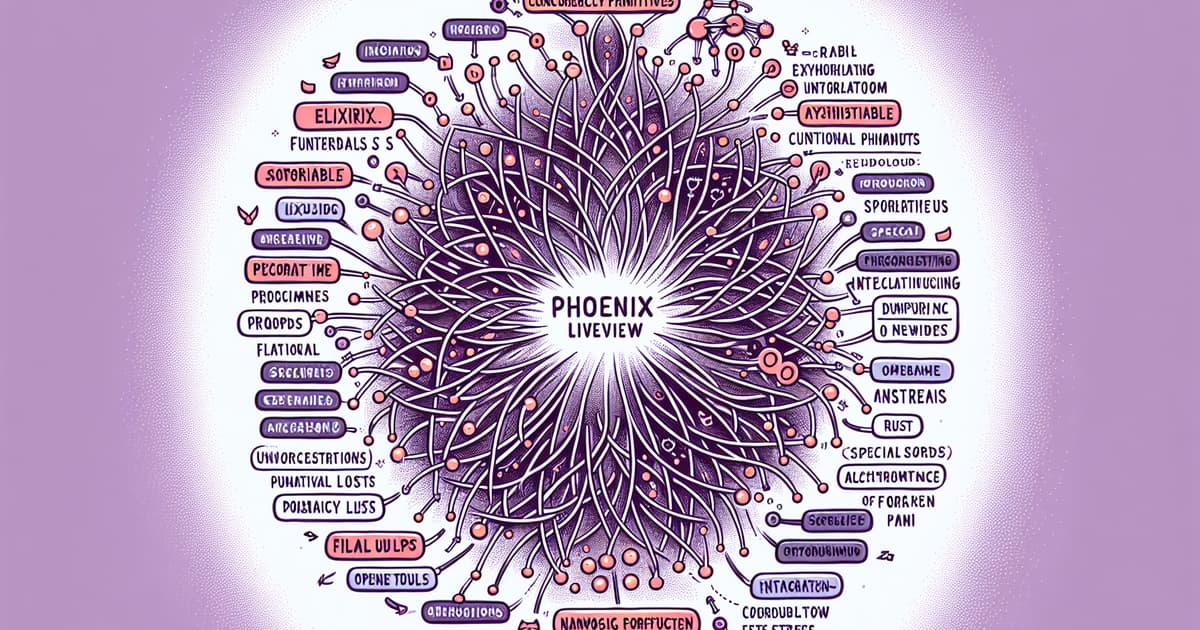
Phoenix LiveView has become a game-changer in the world of web development by providing a seamless way to build interactive, real-time applications without heavy reliance on JavaScript. By leveraging Elixir's concurrency primitives and functional programming paradigms, LiveView enables developers to handle client-server interactions efficiently, offering benefits such as low-latency user experiences and reduced complexity in codebases. Key features include real-time file uploads, dynamic list management using Streams, and integration with powerful tools like SortableJS and OpenAI Chat APIs for enhanced functionality. LiveView also supports seamless integration with static and dynamic HTML elements, providing hooks for custom JavaScript logic, and advanced capabilities such as asynchronous task management and network optimization. Furthermore, its compatibility with tools like Rust and Prometheus ensures that LiveView applications can push performance boundaries while maintaining simplicity and scalability.
One of the standout aspects of LiveView is its ability to leverage the BEAM's soft real-time capabilities, which allows for consistent low-latency responses. This is particularly evident in use cases like real-time search engines, interactive charts, and live video and audio streaming. The LiveView ecosystem continues to evolve with contributions from the community, including tutorials on combining LiveView with contemporary frameworks like Svelte, and innovative projects like building AI-powered components and game development. With ongoing enhancements and community-driven resources, Phoenix LiveView is well-positioned to remain a leading solution for modern, scalable web applications.
Developers have reported significant productivity gains and simplified workflows when using LiveView for scenarios ranging from dynamic form management to complex, data-driven applications. The introduction of features like live_session for organized authorization, asynchronous operations with start_async, and global state management using PubSub further extend its capabilities. LiveView's continuous improvements, driven by its active community and core team, aim to make it even more robust and versatile for various application needs, enabling both seasoned developers and newcomers to harness its full potential.

Integrating WebComponents with Phoenix LiveView
The article delves into using WebComponents within the Phoenix LiveView ecosystem to enhance UI capabilities. It discusses the challenges and benefits of combining server-side rendering with client-side components and offers practical examples and solutions for better integration.

Introducing Backpex: A Customizable Admin Panel for Phoenix LiveView
Florian shares an introduction to Backpex, a tool designed to streamline the creation of admin panels in Phoenix LiveView applications, emphasizing its flexibility and customization.
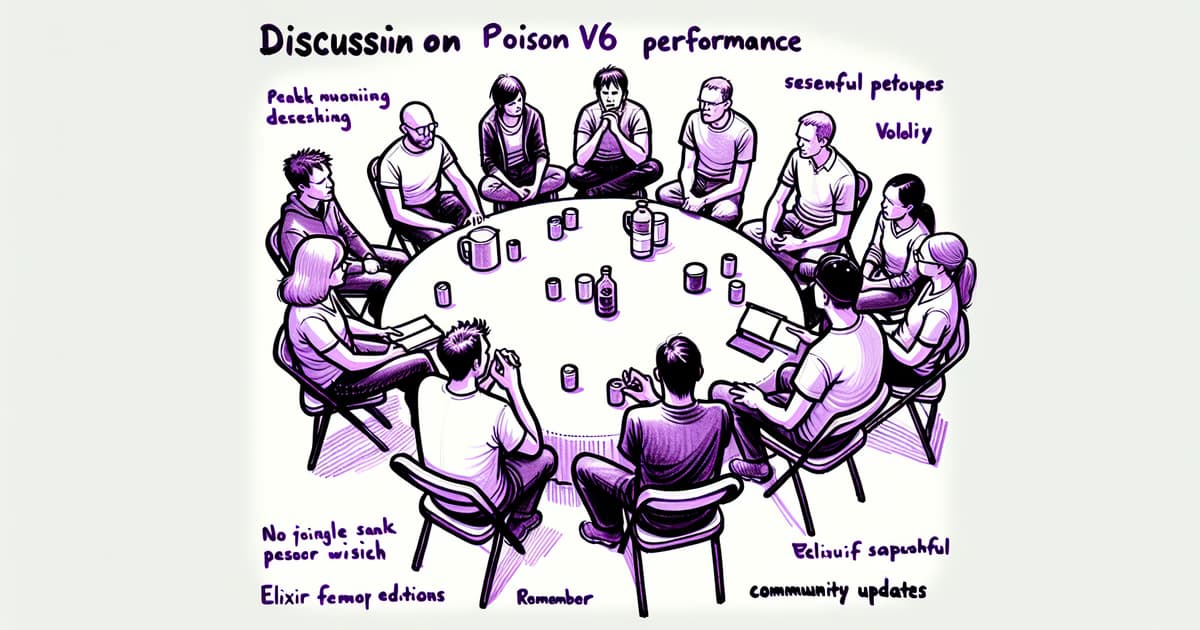
Discussion on Poison v6 Performance and Elixir Community Updates
Hosts of the 'Thinking Elixir' podcast discuss the release of Poison v6.0.0, updates on the Lumen/Firefly project, a new accessibility testing library for Elixir, and more.
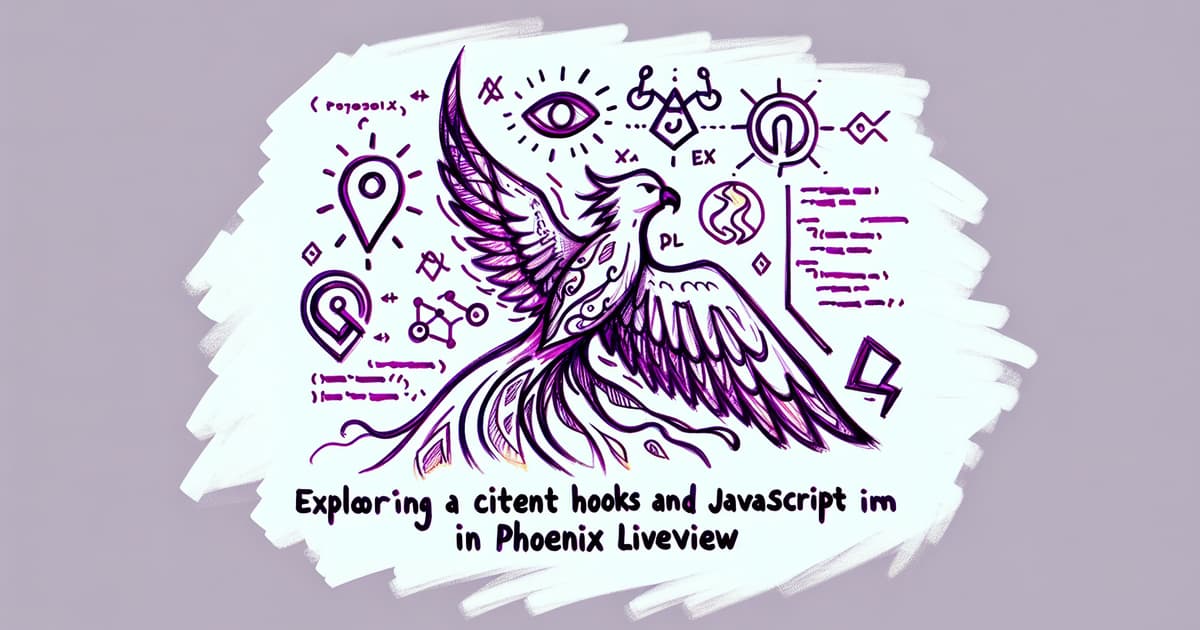
Exploring Client Hooks and JavaScript Integration in Phoenix LiveView
Tyler Barker delves into the misconceptions about Phoenix LiveView as a 'zero-JS' framework, explaining how it manages to minimize the need for JavaScript by leveraging Elixir. The article discusses client hooks, a feature that allows developers to integrate JavaScript for specific interactions, and how this can enhance the development of interactive web applications.

Overview of Elixir and Phoenix for JavaScript Developers
This video, presented by Daniel Berg, offers a comprehensive overview of an Elixir codebase from the perspective of a React developer. Daniel explains the basic structure of an Elixir project, focusing on the differences and similarities with JavaScript, particularly React.
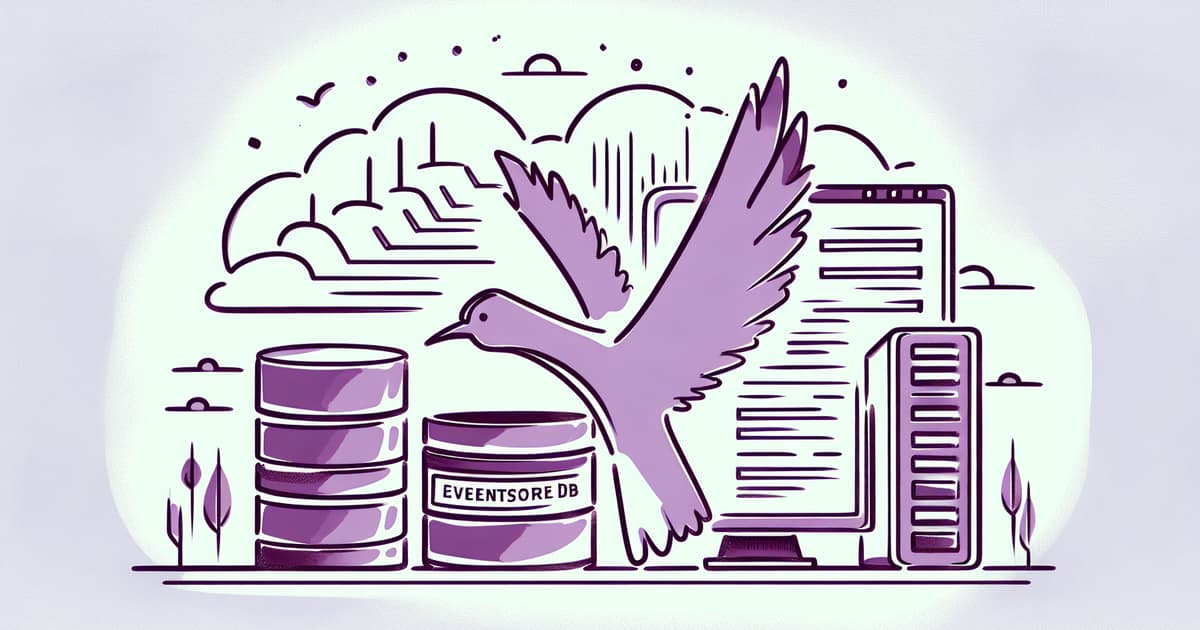
Comprehensive Guide to Implementing ES/CQRS with EventStoreDB, Phoenix, and LiveView
Yevhenii Kurtov presents an extensive tutorial on implementing ES/CQRS systems using Phoenix/LiveView and EventStoreDB. The example focuses on creating a loan processing system, covering various aspects such as command handling, event sourcing, application layer integration, and projecting events for real-time updates.

Deploying Phoenix LiveView in Startups for Effective Web Development
Lekha Surasani shares her experiences of deploying Phoenix LiveView in early-stage startups, particularly at her new job at Ad Pipe.

Enhancing Phoenix LiveView with JavaScript Hooks
The author demonstrates how to use Phoenix LiveView to build a simple countdown timer app and improve its functionality using JavaScript hooks to enhance performance and access browser-native behaviors. The video walks through the process step-by-step, from scaffolding the project to implementing the hooks.

Attaching Multiple Events to phx-click in Phoenix LiveView
skwyckl explores if it is possible to attach multiple events to `phx-click` in Phoenix LiveView, both for server- and client-side actions, without relying on a 'coordinator' `handle_event`.
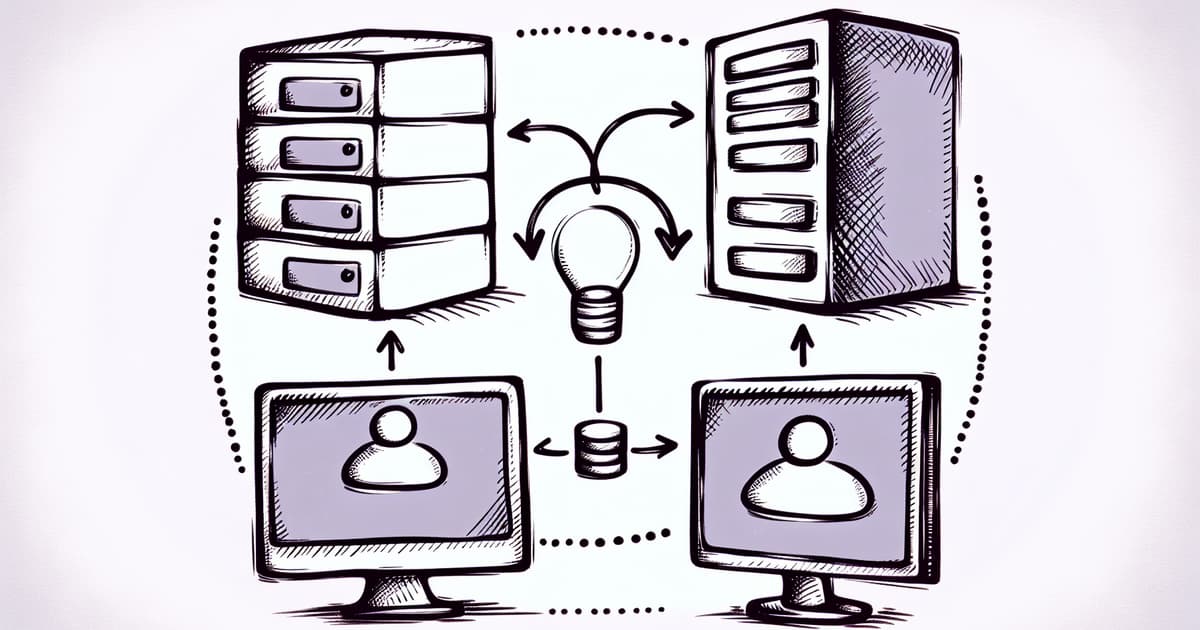
Understanding Client and Server State in Web Applications with Phoenix LiveView
Recent discussions around client-side and server-side frameworks have brought up misconceptions about state handling in web applications. This article delves into how Phoenix LiveView manages client and server state effectively, highlighting solutions for real-time updates and state synchronization.

Reimplementing Shadcn UI with Phoenix Liveview Components
Dung Nguyen shares his attempt to port Shadcn's UI component library from React to Phoenix Liveview, showcasing components he's built and inviting feedback from the community.

Discussion on Best Practices for Function Usage in Elixir
Author pico303 questions the practice of using small, seemingly wasteful functions in Elixir, as suggested in Programming Phoenix LiveView.

Enhancing LiveView Apps with Nx and AI Features
Paulo Valente discusses how to integrate Nx functionality into Phoenix LiveView applications using AI models, specifically focusing on image classification with Bumblebee and distributing the workload across nodes.

Integrating Bootstrap Native with Phoenix LiveView
José Valim shares his experience of using Bootstrap Native with Phoenix LiveView, detailing steps to integrate Bootstrap components with LiveView applications.

Exploring the Benefits of Phoenix LiveView
José Valim discusses the advantages of Phoenix LiveView in simplifying real-time web application development, showcasing its use in Bytepack for package publishing.

Reflections on a Decade of Elixir Development by José Valim
José Valim reflects on the milestones, technological advancements, and diverse applications of Elixir over the last decade, along with insights into upcoming developments in 2021.

Introducing Livebook for Interactive and Collaborative Elixir Notebooks
José Valim announces the release of Livebook, a web application for coding notebooks in Elixir with features such as collaboration and code execution.

Exploring Future Directions for Surface and Phoenix LiveView
Marlus Saraiva discusses the recent updates and future directions for Phoenix LiveView and Surface, focusing on improving the component model and development experience.

Examining the Future of Elixir and Cloud Ecosystems
Lars Wikman explores the future of the Elixir ecosystem, focusing on the potential of cloud providers like Fly.io and tools such as Phoenix LiveView. The post examines the trade-offs involved in software abstractions and the need for operational simplicity.

Discussion on Frontend vs Backend and the Business Value of LiveView
Mark Ericksen, David Bernheisel, and Cade Ward discuss the misconceptions around Frontend vs Backend, the advantages of Single Page Apps, and the business value of using LiveView.

Building Video Chat Applications with Phoenix LiveView
Jesse Herrick discusses the development of a video chat app using WebRTC and Phoenix LiveView, including the roles of WebRTC protocol, JS hooks, and server events.

Integrating Phoenix LiveView with Airtable Backend
Mark Ericksen hosts an episode featuring Ricardo Garcia Vega discussing how a Phoenix application can be integrated with Airtable, leveraging tools like ETS tables, GenServers, and LiveView for real-time updates.
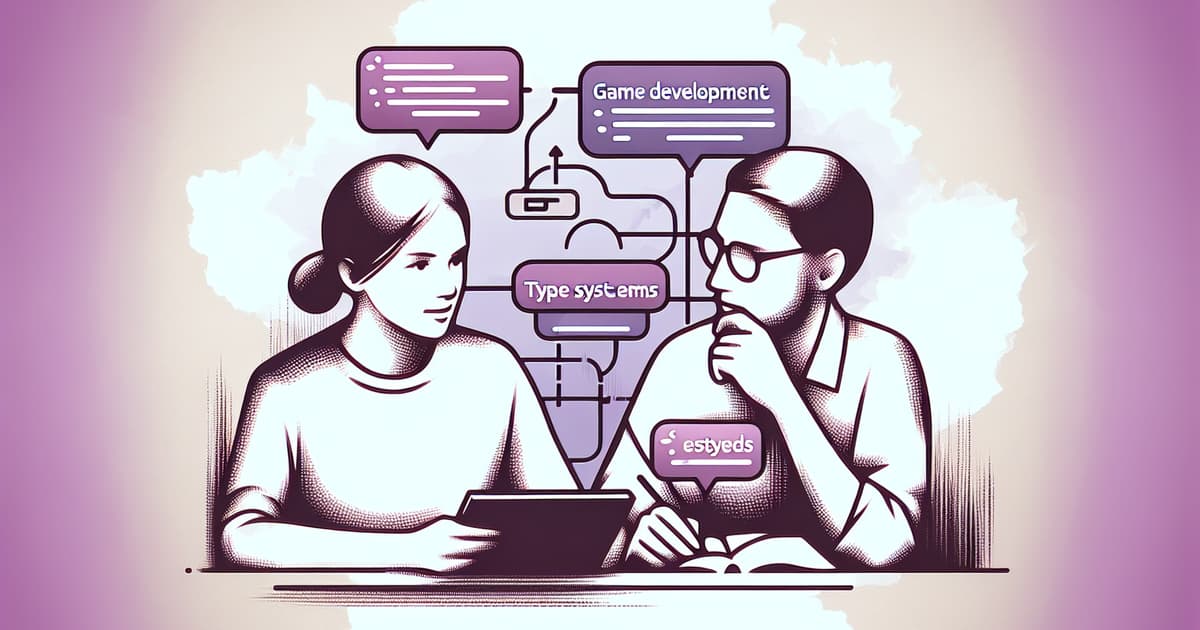
Discussion on Gleam Language, Game Development and Type Systems with Quinn Wilton
The hosts of Thinking Elixir talk with Quinn Wilton about Gleam, a statically typed language for the BEAM, and its relevance to Elixir developers. Quinn also shares insights on her Chip8 emulator using LiveView, dynamic security analysis, and offers library recommendations.

Exploring the Intersection of Elixir and Art
Milada Majáková discusses her journey from Architecture and Graphic Design to learning Elixir as her first programming language. She shares insights into creating generative art using Elixir and LiveView.

Discussion on LiveView, LiveWire, and Alpine.js with Caleb Porzio
The episode features a talk with Caleb Porzio, who discusses his work on LiveWire, Alpine.js, and sustaining open-source projects.
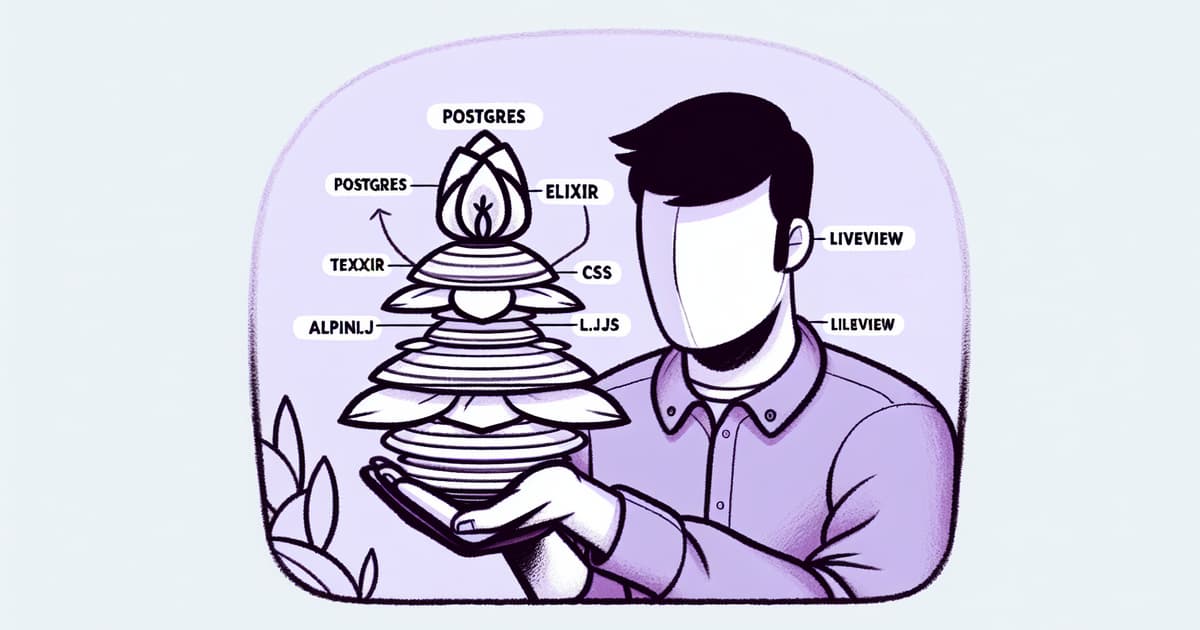
Exploring the PETAL stack with Patrick Thompson
Patrick Thompson discusses the PETAL stack, including Phoenix, Elixir, Tailwind CSS, Alpine.js, and LiveView, highlighting their features and benefits.

Podcast about Techniques for Performing Migrations in Production
Patryk Bąk discusses strategies for running migrations in production environments where downtime or service interruptions are problematic. Tips, techniques, and examples are shared, along with hosts' war stories, tips, and mistakes.

Discussion with Marlus Saraiva on enhancing Elixir developer experience
This episode of the Thinking Elixir Podcast discusses the projects Marlus Saraiva is involved with to improve the developer experience in Elixir. The conversation covers Broadway, Surface, and ElixirLS, and touches on future developments and web development improvements.
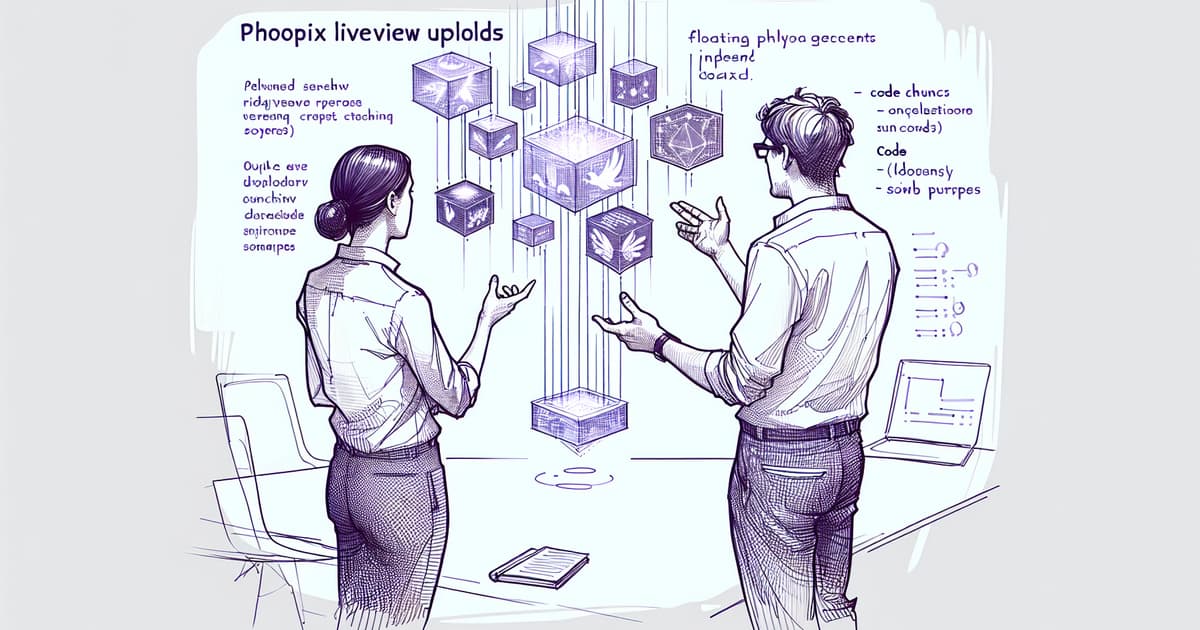
Discussion on Phoenix LiveView Uploads with Chris McCord
Chris McCord discusses the Phoenix LiveView 0.15.0 release, highlighting the new uploads feature.

Exploring LiveView and Hooks with Alex Minette
Alexandre Minette shares his adventures with LiveView as he builds a personal finance tracking application.

Discussing Mental Models in Elixir and LiveView
In this episode, hosts Mark Ericksen, David Bernheisel, and Cade Ward discuss mental models for writing Elixir code and thinking about Elixir and LiveView systems. They share their experiences with transformations, plug, and the 'Workshop Model' for LiveView.

Interview with Velina Petrova on LiveView and Blogging
The podcast episode discusses Velina Petrova's experience implementing a LiveView autocomplete feature and her thoughts on blogging and sharing knowledge in the Elixir community.

Interview on Training and Building Elixir Projects
Sophie DeBenedetto and Meryl Dakin discuss their experiences training others and building Elixir projects under constraints.

Discussion on Livebook and its Features with Jonatan Kłosko
Jonatan Kłosko discusses Livebook, its functionalities, collaborative features, its application in unusual ways, and its uses beyond machine learning.

Modular Design and Read Models with Maciej Kaszubowski
Maciej Kaszubowski discusses the benefits of read models in modularizing systems, addressing background job systems, and the differences between push and pull based systems. The episode also highlights recent developments in the Elixir community.

Optimizing Real-Time Web Apps with Phoenix LiveView Streams
Sophie DeBenedetto explains how Phoenix LiveView optimizes real-time web applications using streams for efficient client-server communication, focusing on its declarative approach and practical benefits.

Special Episode of Elixir Wizards Featuring Lonestar Elixir Conference Previews
In this special episode, the host and guest host Todd Resudek are joined by several guests who discuss their work and upcoming presentations at the Lonestar Elixir conference.

Hiring and Training Insights from DockYard
Mike Binns and Alex Garibay from DockYard discuss their journeys, DockYard's hiring and training processes, and the importance of employee growth.
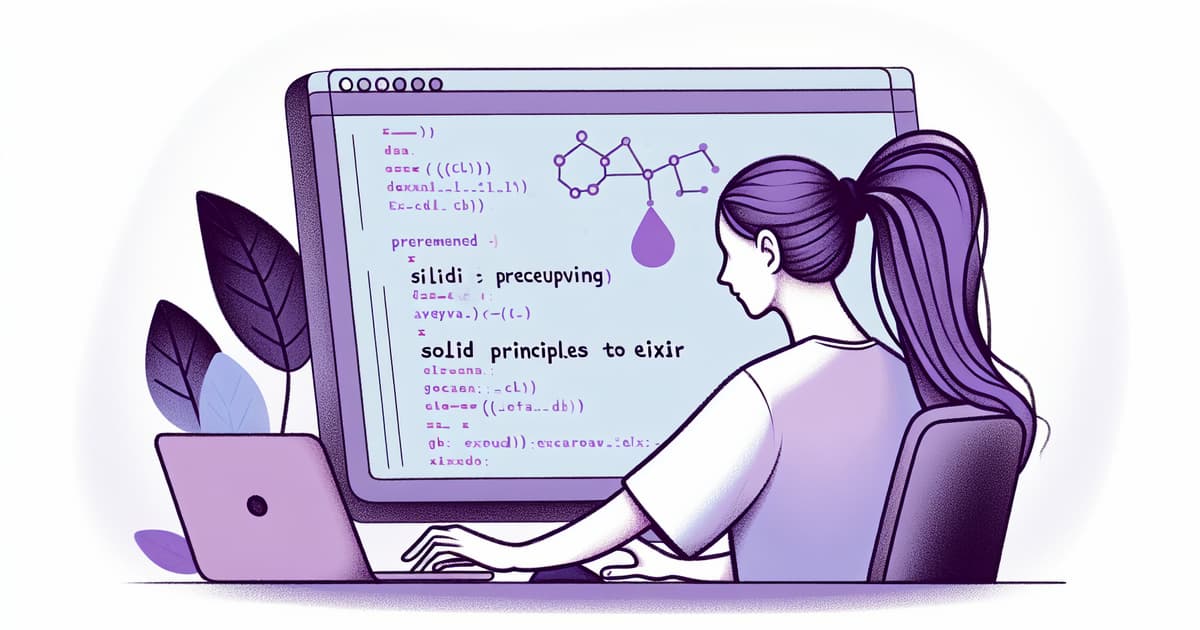
Applying SOLID Principles to Elixir with Ilya Averyanov
Hosts discuss with Ilya Averyanov about applying SOLID OOP principles to Elixir.

Learning from Application Failure and Recovery Strategies
Philipp Schmieder discusses his experience creating a LiveView application for a political party’s convention, the subsequent failure of the app, and the lessons learned. He shares how the application was fixed and offers insights on architecture ideas. The episode also includes Elixir Community News and event updates.
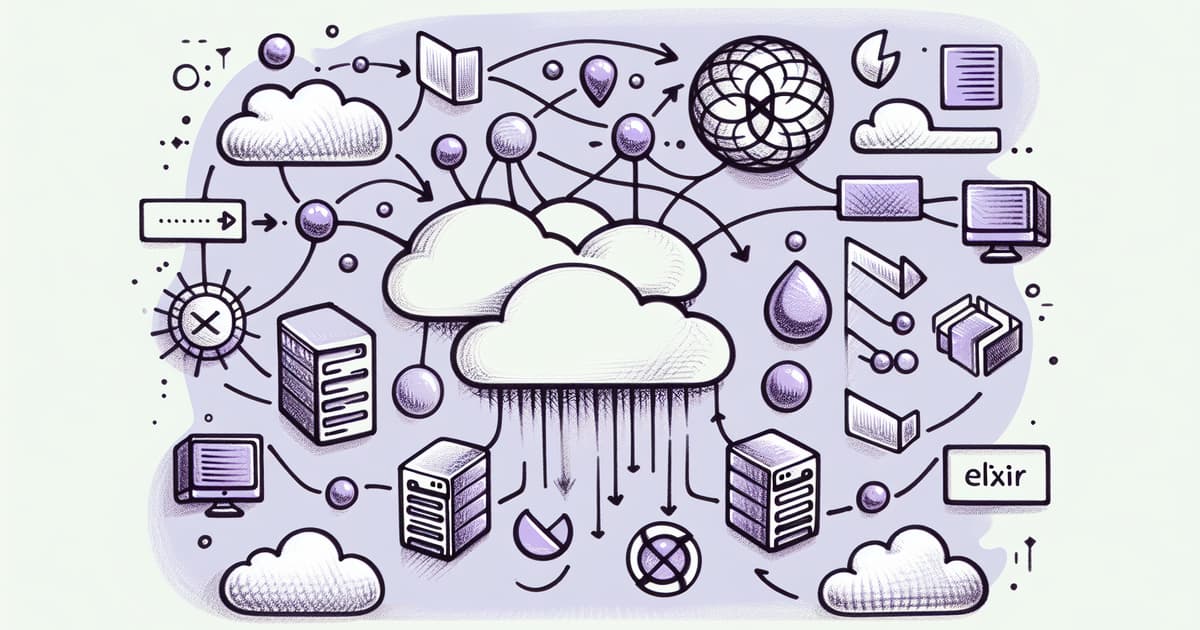
Fly.io's Approach to Hosting Elixir Apps
In this episode, Kurt Mackey from Fly.io discusses the advantages and unique aspects of hosting Elixir applications on Fly.io. The conversation covers the platform's origins, technology behind it, and the benefits of running applications close to users.

Discussion on Brex's Shift from Elixir to Kotlin
Hosts Mark Ericksen, David Bernheisel, and Cade Ward discuss Brex's recent decision to shift from Elixir to a Kotlin-first strategy, along with other community news.

Exploring Real-Time Applications with Steve Bussey
Steve Bussey discusses challenges and strategies in developing real-time applications using Elixir.

Interview with Elixir Core Team Member Aleksei Magusev
The hosts of the podcast interview Aleksei Magusev, a member of the Elixir Core Team. They discuss his journey with Elixir, his contributions to the language, and his insights on various topics.

Exploring Elixir on Mobile Devices
Mark Ericksen and co-hosts speak with Dominic Letz about running Elixir on an Android phone with LiveView. Highlights include discussions on decentralized Web 3.0 architectures and open-source technologies.

In-depth Discussion on Phoenix Framework with Chris McCord
Chris McCord, creator of the Phoenix framework, joins the podcast to discuss his programming journey, LiveView, and the future of Phoenix and the Elixir community.

Discussion with Andrea Leopardi and René Föhring about Elixir
In the part one of this podcast episode, guests Andrea Leopardi and René Föhring discuss various aspects of the Elixir programming language, their current projects, and future possibilities for the language.

Exploring LiveView Through the 7-GUI Tasks with German Velasco
In this episode, German Velasco discusses applying the 7-GUI Tasks challenge to LiveView and shares insights from his ElixirConf presentation.

Sneak Peek into ElixirConf 2020 Talks
The episode provides a sneak peek into ElixirConf 2020 by interviewing six speakers who share details about their presentations and experiences.

Interview with Nathan Willson on GEMS Project Using LiveView for Collaborative Music
In episode 79, the Thinking Elixir Podcast hosts talk with Nathan Willson about his collaborative music generator, GEMS, created using LiveView. They discuss the technical aspects, challenges, and deployment via Fly.io.
© HashMerge 2026